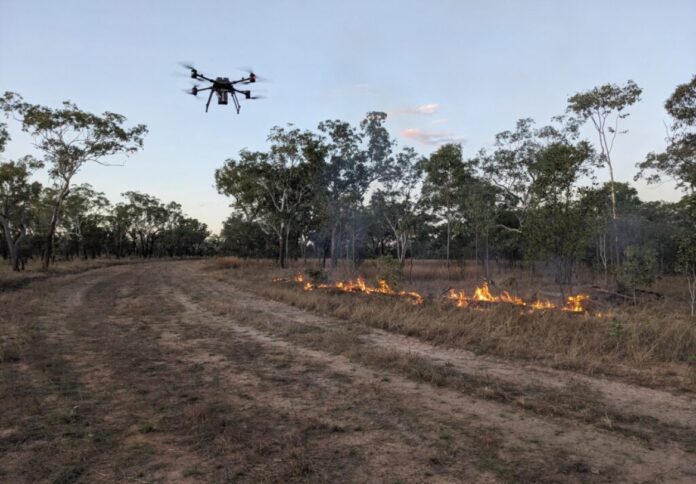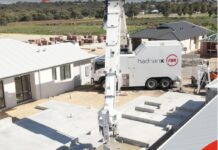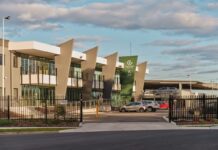
A new initiative led by Charles Darwin University (CDU) is set to enhance battlefield healthcare by deploying heavy-fuel cargo drones for medical deliveries, according to a news release from CDU.
The project, spearheaded by the North Australia Centre for Autonomous Systems (NACAS) at CDU with support from the Queensland Defence Science Alliance (QDSA), aims to address the technical, logistical, and regulatory hurdles of deploying autonomous aerial medical transport in combat zones.
NACAS is collaborating with Queensland-based uncrewed aerial systems manufacturer SAIDYNAMICS to adapt its hybrid two-stroke engine drone for long-range medical supply missions, including cold-chain cargo transport.
The project will also involve Griffith University’s Centre for Enterprise Architecture Research and Management, which will develop navigation algorithms to enable drone operations in GPS-degraded environments.
Initial visual line-of-sight flight trials are planned in the Northern Territory, with beyond-visual line-of-sight (BVLOS) trials to follow, pending regulatory approval.
NACAS Professor Hamish Campbell said that while Australia has heavily invested in sovereign uncrewed aerial system (UAS) manufacturing, the focus on integrating these platforms into operational frameworks and national airspace has been limited.
Professor Campbell stated that the Northern Territory’s minimal ground infrastructure and low population density created optimal conditions for conducting the project’s flight trials.
“NACAS is one of the leading organisations in Australia for research into UAS airspace integration, and this will be bolstered by the opening of the new Airspace Integration Research Facility (AIR-F) later in 2025,” Professor Cambell said.
QDSA Director Stuart Blackwell highlighted the project’s potential to enhance logistical distribution in remote areas of Northern Australia, benefiting the Australian Defence Force (ADF) and regional industries.
“QDSA believes this particular project has real potential to solve some of the logistics distribution challenges in remote locations of Northern Australia that will benefit Defense, Queensland and the Northern Territory,” Blackwell said.
CDU Deputy Vice-Chancellor Research and Community Connections Professor Steve Rogers emphasised the university’s role in advancing defence technology.
“Australia needs to be at the forefront of defence research and innovation, and our researchers will provide strategically vital experience to these projects,” Professor Rogers said.
“Charles Darwin University became a member of the Queensland Defence Science Alliance less than a year ago and the beginning of these projects are a testament to our world-leading knowledge and capabilities.”
Northern Territory Chief Minister and Minister for Defence NT Lia Finocchiaro commended the project’s contribution to national security and defence readiness.
“This research reinforces the importance of the Northern Territory to our nation’s defence security and strategic importance in the Indo-Pacific,” Mrs Finocchiaro said.
“I look forward to showcasing the incredible capabilities of our industry at NT Defence Week in April 2025.”



















